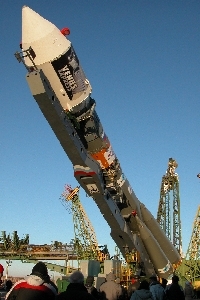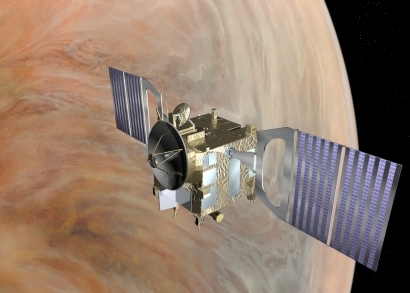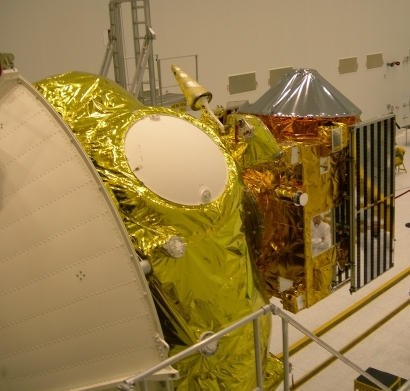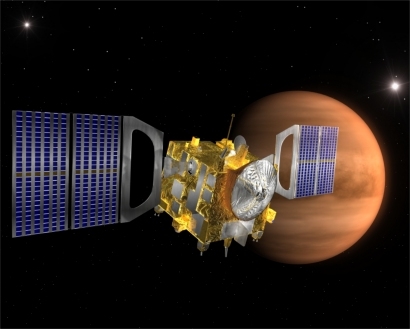8 November 2005
Venus Express ready for the off
Europe’s Venus Express probe is now set to lift off on Wednesday 9 November atop a Russian Soyuz-Fregat launcher.
The journey to Venus will take 153 days, plus a further 5 days to move into orbit about the planet.
The journey to Venus will take 153 days, plus a further 5 days to move into orbit about the planet.
Originally scheduled in October, the launch had to be postponed after contamination was detected inside the Soyuz fairing.

Additional inspections and cleaning of the top section delayed the launch several days.
Soyuz-Fregat is now ready to launch from the Baikonur Cosmodrome in Kazakhstan, where it has been on the launch pad since 5 November undergoing final preparations.
All eyes on Venus

The probe will fly around Venus in a quasi-polar orbit, at an altitude of 250 to 66,000 km.
For 2 Venus days (equivalent to 500 Earth days), Venus Express will analyse the planet’s atmosphere, ionosphere and volcanic activity.
CNES is involved in this European mission and is contributing to 3 science experiments.
The Virtis1 and Spicav2 spectrometers will analyse the planet’s atmosphere, while the Aspera-43 instrument will study its ionized environment.
CNES is involved in this European mission and is contributing to 3 science experiments.
The Virtis1 and Spicav2 spectrometers will analyse the planet’s atmosphere, while the Aspera-43 instrument will study its ionized environment.

The Venus Express mission has taken only 4 years from concept to launch.
The project got underway in 2001 and the satellite is derived directly from Mars Express and re-uses some of its subsystems.
ESA selected EADS Astrium to build the spacecraft in October 2002.
1 Virtis : Visible and InfraRed Thermal Imaging Spectrometer
2 Spicav : SPectroscopy for the Investigation of the Characteristics of the Atmosphere of Venus
3 Aspera-4 : Analyser of Space Plasmas and EneRgetic Atoms
